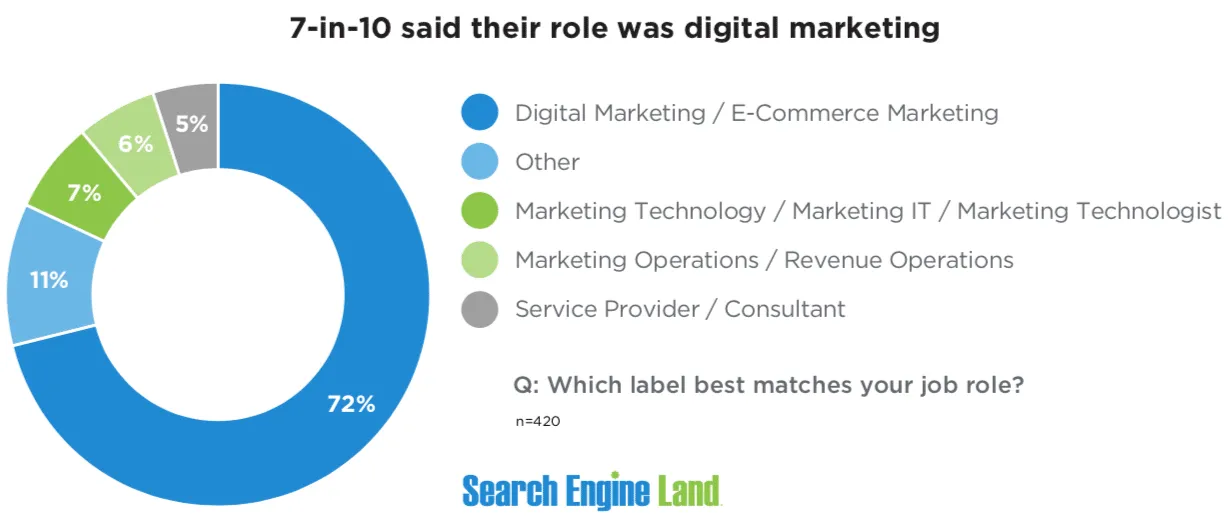One of the most alluring and fulfilling professions available is search marketing, which also has the potential to earn significant rewards over time. Now that a new survey from Search Engine Land has revealed the typical income and bonus payout for search marketers across various levels of experience, aspirant pros can better understand what to budget for.
The survey indicates that search marketers' typical annual salary (including bonuses) is between $60,000 and $220,000. VP and C-level positions pay an average of $220,613 annually, making them the most profitable jobs. Directors and senior directors typically earn $122,760 annually, managers earn $87,688 annually, and staff earns $60,866 annually.
The fast-paced field of search engine marketing presents promising chances for expansion. No matter where they are in their careers, aspirant professionals now understand what they can anticipate earning thanks to this new poll from Search Engine Land that offers insight into earnings across various degrees of expertise within the sector!
The survey revealed a sizable compensation discrepancy between executives and their employees. From directors to vice presidents, salaries can differ significantly depending on several variables, such as location, company size, and years of experience.
The findings also demonstrated that search marketers in organizations with 500+ staff members were well compensated for their dedication, with an average pay starting at around $66K and rising to an astonishing $120K after ten years. These people could expect to make above-average earnings even without a graduate degree; those who did, however, experienced only modest raises ($98,988 on average), while those without such credentials saw no change.
But according to data from the U.S. Census Bureau, less than 15% of people aged 25 and older have this high education. The study's results provided a fascinating look at how different types of people in the industry approach digital marketing. 15% of brand professionals worked in positions including e-commerce and digital tactics, compared to nearly 50% of brand professionals primarily focused on conventional marketing. When asked about their function for online activity, over three-quarters said it was directly related, with SEO titles being the most prominent for those who weren't in this group.
Take a look at below charts for more insights:
Read next: Digital Ad Spends Decline 2% YTD Amid Inflation
The survey indicates that search marketers' typical annual salary (including bonuses) is between $60,000 and $220,000. VP and C-level positions pay an average of $220,613 annually, making them the most profitable jobs. Directors and senior directors typically earn $122,760 annually, managers earn $87,688 annually, and staff earns $60,866 annually.
The fast-paced field of search engine marketing presents promising chances for expansion. No matter where they are in their careers, aspirant professionals now understand what they can anticipate earning thanks to this new poll from Search Engine Land that offers insight into earnings across various degrees of expertise within the sector!
The survey revealed a sizable compensation discrepancy between executives and their employees. From directors to vice presidents, salaries can differ significantly depending on several variables, such as location, company size, and years of experience.
The findings also demonstrated that search marketers in organizations with 500+ staff members were well compensated for their dedication, with an average pay starting at around $66K and rising to an astonishing $120K after ten years. These people could expect to make above-average earnings even without a graduate degree; those who did, however, experienced only modest raises ($98,988 on average), while those without such credentials saw no change.
But according to data from the U.S. Census Bureau, less than 15% of people aged 25 and older have this high education. The study's results provided a fascinating look at how different types of people in the industry approach digital marketing. 15% of brand professionals worked in positions including e-commerce and digital tactics, compared to nearly 50% of brand professionals primarily focused on conventional marketing. When asked about their function for online activity, over three-quarters said it was directly related, with SEO titles being the most prominent for those who weren't in this group.
Take a look at below charts for more insights:
Read next: Digital Ad Spends Decline 2% YTD Amid Inflation










